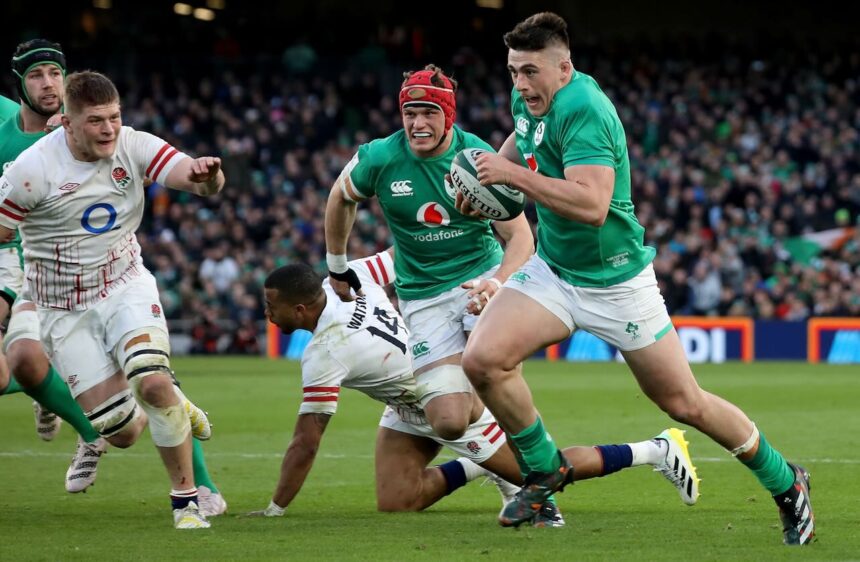Ireland’s victory over defending champions South Africa two weeks ago has been hailed as one of the great Rugby World Cup performances and they will not wish to spoil that by losing to Scotland on Saturday.
Several members of the squad have endured heartbreak at previous World Cups and, driven on by talismanic captain Johnny Sexton, who retires after the tournament, they will be hungry to put the game to bed early on.
The number one ranked team in the world will qualify for the knock-out stages with a win or a draw.
Defeat by eight points or more without getting a try bonus point would see Ireland crash out.
AFP Sport picks out three factors that could be key in the match:
Sexton v Russell — a titanic duel
Sexton may downplay it but whoever wins the fly-half battle between him and his opposite number Scotland’s Finn Russell will decide the match.
The crowd are in for a treat as two of the greatest playmakers of the modern era pull the strings.
Sexton will be no frills, or ‘high church’, as former Ireland full-back Hugo MacNeill described him to AFP, calling him “disciplined, controlled and with a structured game,” whereas Russell is Welsh chapel — “more populist and crowd pleasing.”
Sexton may be 38 but he has certainly not looked it in his performances so far, something backs coach Mike Catt puts down to the freshness he derived from being banned before the tournament.
Russell is capable of the most wonderful and outlandish passes and kicks that expose opponents’ defences. However, like with any magician, the 31-year-old’s tricks can also fail to come off and can sometimes provide rich pickings for their rivals.
Both normally would be targeted early on but Russell says the dark arts of rugby will stay firmly in their box when it comes to Scotland’s handling of Sexton.
“I wouldn’t see the need to go over the top and put him off his stride or take him out,” said Russell.
Gerulaitis sets precedent for Scots
Scotland could be forgiven for not bothering to turn up if they studied the statistics too closely.
Ireland are ranked number one in the world, are seeking a record-extending 17th successive Test win and have beaten the Scots in their last eight meetings.
However, Catt said that meant nothing.
“No, I don’t think it gives them (the players) anything,” he said, referring to the winning run.
“History is history. It doesn’t come into it at all, from our point of view.”
If anything has been learned during the run, Catt said, it was more how to cope with big-match pressure dating back to the historic come-from-behind 2-1 series win in New Zealand last year.
If the Scots need to draw inspiration from anywhere then it is the late American tennis player Vitas Gerulaitis when he beat Jimmy Connors in January 1980 after losing to him 16 consecutive times.
“Let that be a lesson to you all. No one beats Vitas Gerulaitis 17 times in a row,” said the charismatic star.
Calm heads required
The stakes are high and when it concerns two teams that have a history of prickly encounters, this match threatens to boil over.
Certainly Jean Kleyn believes this will be the case. The 30-year-old former Ireland lock who is now in the South Africa squad experienced that in matches between his Irish province Munster and Scottish sides.
“There’s a little bit of animosity between the Irish and the Scots and there always has been, especially from a rugby perspective,” said Kleyn.
“At club level, you look at teams like Munster and Glasgow there’s always been this underlying — I wouldn’t call it hatred — but there’s a little bit of knife in the back.
“For Ireland and Scotland (Tests), it’s even more so. It’s very much magnified at international level.”
Russell did his best to fan the flames earlier in the week, stirring up Peter O’Mahony, who has had his disciplinary problems in the past and on his 100th cap will be emotional.
“There might be someone like Peter O’Mahony trying to start something, handbags or something like that.
“Whoever manages (the emotion) the best will probably come out the other end.”



Leave a Reply